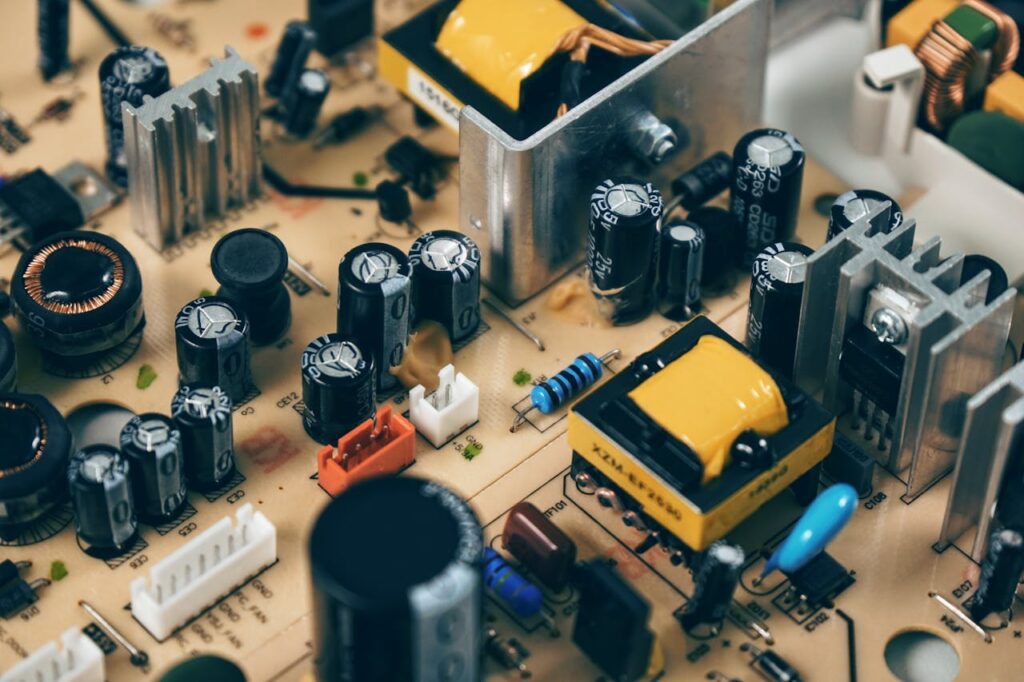What Is The RoHS Directive?
The Restriction of Hazardous Substances (RoHS) Directive is a key piece of European legislation. It is designed to reduce the environmental and health risks posed by hazardous materials found in electrical and electronic equipment.
Introduced in 2003 and updated in subsequent years, the RoHS Directive limits the use of specific dangerous substances in products sold across the UK and EU.
The aim of RoHS is to make electronics safer throughout their lifecycle, from manufacture and use to recycling and disposal. By restricting harmful materials, it helps protect human health, reduce pollution, and support the recycling of valuable resources.
Which Substances Does RoHS Restrict?
RoHS restricts the use of several hazardous substances that were once widely used in electronics. These include:
- Lead (Pb)
- Mercury (Hg)
- Cadmium (Cd)
- Hexavalent chromium (Cr6+)
- Polybrominated biphenyls (PBB)
- Polybrominated diphenyl ethers (PBDE)
- Certain phthalates (DEHP, BBP, DBP, DIBP)
Manufacturers and importers must ensure that these substances do not exceed the allowed concentration limits in their products. This applies to a wide range of equipment, including household appliances, IT equipment, lighting, tools, toys, and medical devices.
Why Is the RoHS Directive Important?
The RoHS Directive plays a vital role in safeguarding both people and the planet:
- Protecting human health: By removing toxic substances from everyday electronics, RoHS reduces exposure to materials that can cause serious health issues.
- Supporting sustainable recycling: Hazardous materials can complicate recycling and pollute waste streams. RoHS makes it easier to recover and reuse valuable resources safely.
- Encouraging innovation: Compliance drives manufacturers to develop safer, more sustainable product designs and materials.
Business Responsibilities Under RoHS
Any business that manufactures, imports, or distributes electrical and electronic equipment must ensure that their products comply with RoHS requirements. This includes:
- Testing and verifying that restricted substances are below allowable levels.
- Maintaining compliance records and technical documentation.
- Affixing the CE mark to demonstrate conformity.
Failure to comply can result in product recalls, fines, or restrictions on selling products in the UK and EU markets.
Supporting RoHS Compliance
At Collect and Recycle, we specialise in collecting and recycling both electronic and hazardous waste for businesses across the UK. Our services are designed to help organisations meet their compliance obligations while ensuring waste is managed responsibly.
We provide:
- WEEE collection and recycling: ensuring electronics are processed in line with UK and EU regulations.
- Hazardous waste management: safe handling and treatment of materials.
- Compliance support: supplying documentation and certification for your records.
- Sustainable outcomes: maximising resource recovery while protecting the environment.
By working with us, your business can manage waste efficiently, remain compliant with regulations, and contribute to a cleaner, safer future.


